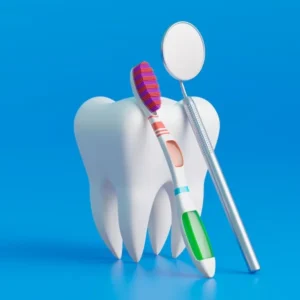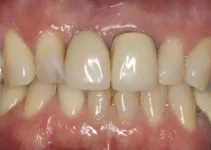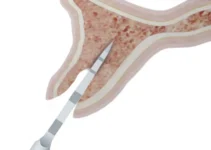Maintaining good oral health is crucial for overall well-being and can prevent a variety of dental and medical problems. This article explores essential practices such as regular brushing and flossing, proper diet, and routine dental checkups. Understanding the connection between oral health and systemic health will empower you to make informed decisions about your dental care routine.
The Importance of Oral Health
Maintaining good oral health is not just about having a bright smile; it plays a crucial role in our overall well-being. Our mouths serve as the gateway to the rest of our body, making it essential to keep them healthy. Oral health impacts not only our ability to eat, speak, and socialize without discomfort or embarrassment but also affects our systemic health in significant ways.
Many people are unaware that a simple toothache could be a sign of something more severe. Conditions such as gum disease and tooth decay are prevalent but preventable with proper care. Furthermore, research has shown a strong connection between oral health and chronic diseases like diabetes and heart disease, making it even more essential to prioritize our dental hygiene.
Preventing Dental Diseases
Preventing dental diseases starts with a consistent and effective oral hygiene routine. Regular brushing, flossing, and dental check-ups can significantly reduce the risk of developing common dental issues such as cavities and gum disease. According to the American Dental Association (ADA), one should brush their teeth twice a day with fluoride toothpaste and floss at least once a day.
Dental diseases are primarily caused by plaque, a sticky film of bacteria that forms on teeth and gums. If not removed through proper brushing and flossing, plaque can harden into tartar, leading to gum inflammation and tooth decay. Professional cleanings by a dentist are essential to remove tartar and keep your teeth and gums healthy.
Another crucial aspect of prevention is being mindful of one’s diet. Limiting the intake of sugary foods and beverages can reduce the risk of dental caries, as sugar is a primary food source for harmful bacteria in the mouth. It’s also important to avoid tobacco products, which can cause gum disease and oral cancer.
The Role of Nutrition in Oral Health
Nutrition plays a vital role in maintaining oral health. What we eat and drink affects our teeth and gums directly. Consuming a balanced diet rich in essential nutrients helps to strengthen the enamel and supports overall oral health. Foods high in calcium such as dairy products, leafy greens, and nuts help to bolster tooth enamel, making it more resistant to decay.
Vitamins and minerals are essential for healthy gums. For example, vitamin C found in citrus fruits and vegetables aids in maintaining the integrity of gum tissue and prevents conditions like gingivitis. Phosphorus, found in protein-rich foods such as meat, eggs, and dairy, works alongside calcium to maintain strong teeth.
Staying hydrated is also crucial for oral health, as saliva production is necessary to neutralize acids produced by bacteria and wash away food particles. Drinking plenty of water and chewing sugar-free gum can help stimulate saliva flow, which protects against decay and gum disease.
Impact of Oral Health on General Health
There is a growing body of evidence linking oral health to overall general health. Poor oral hygiene has been associated with several chronic conditions, highlighting the importance of maintaining a healthy mouth. For instance, individuals with gum disease are more likely to suffer from cardiovascular diseases. The inflammation caused by periodontal disease can contribute to the narrowing of arteries, leading to heart conditions.
Oral health also plays a significant role in managing diabetes. People with diabetes are more susceptible to infections, including gum disease, which can make it harder to control blood sugar levels. Conversely, treating periodontal disease can help improve blood sugar control in diabetics.
Moreover, there is a link between poor oral health and respiratory infections. Bacteria from the mouth can be inhaled into the lungs, causing respiratory diseases such as pneumonia. Pregnant women with gum disease are also at a higher risk of delivering preterm, low-birth-weight babies.
Given these connections, it’s clear that good oral health practices are essential not just for maintaining a healthy mouth but for ensuring overall well-being. Understanding and addressing the importance of oral health can lead to better health outcomes and an improved quality of life.
To further enrich your knowledge about how oral health intertwines with other aspects of your life, explore more of our informative articles and stay updated with the latest advancements in dental care.
Effective Oral Hygiene Practices
Maintaining proper oral hygiene is crucial for overall health. Effective oral hygiene practices not only keep your teeth and gums healthy but also prevent various dental conditions such as cavities, periodontal diseases, and bad breath. Adopting a comprehensive oral hygiene routine is essential for both natural and implanted teeth. Proper oral hygiene practices can be divided into several key areas, including brushing techniques, flossing, and interdental cleaning. These practices, when done correctly, remove plaque, prevent tartar buildup, and protect against oral infections. Let’s explore these practices in detail.
Brushing Techniques
Brushing your teeth correctly is the cornerstone of effective oral hygiene. It is important to use a soft-bristled toothbrush and fluoride toothpaste. The brushing technique significantly impacts how well plaque and food particles are removed from the teeth and gums.
Experts recommend the following brushing techniques for optimal oral hygiene:
- Proper Angle: Hold your toothbrush at a 45-degree angle to your gums. This angle helps remove plaque at the gum line, a common area where dental issues begin.
- Gentle Strokes: Use gentle, circular brushing motions rather than harsh scrubbing. This method is effective in cleaning surfaces without damaging the enamel or gums.
- Duration: Brush for at least two minutes, twice a day. Ensure you cover all surfaces of your teeth, including the outer, inner, and chewing surfaces.
Additionally, replace your toothbrush every three to four months, or sooner if the bristles become frayed. Using a worn-out brush can be less effective at removing plaque and can harm the gums.
Flossing and Interdental Cleaning
While brushing is vital, it often fails to clean the spaces between teeth effectively. Flossing and interdental cleaning are crucial to remove food particles and plaque from these hard-to-reach areas. Effective interdental cleaning can prevent decay and gum disease, especially in adults.
Here are some tips for effective flossing:
- Correct Length: Use about 18 inches of dental floss, winding most of it around the middle fingers of both hands, and leaving about 1-2 inches of floss to work with.
- Gentle Movement: Guide the floss between your teeth using a gentle sawing motion. Avoid snapping the floss, as this can damage the gums.
- Curve the Floss: Curve the floss around each tooth to make a “C” shape. Slide it under the gum line and along the side of each tooth to remove plaque and debris.
In addition to traditional floss, interdental brushes and water flossers can be highly effective, especially for individuals with dental implants, braces, or wider gaps between teeth. Incorporating these tools into your daily routine can significantly improve your oral hygiene.
By adopting these effective brushing techniques and incorporating flossing and interdental cleaning into your daily routine, you can maintain a healthier mouth and prevent a wide range of dental issues. For more tips on oral health, be sure to read our other articles on advanced dental care.
Common Oral Health Issues
Oral health is a crucial aspect of overall well-being, often neglected until problems arise. Understanding and addressing common oral health issues can prevent complications and improve quality of life. This section explores some prevalent oral health problems: tooth decay, gum diseases, and bad breath.
These conditions not only cause discomfort but can also lead to more severe health issues if left untreated. Awareness and early intervention are key to maintaining optimal oral health. Let’s delve into these common concerns and learn how to tackle them effectively.
Tooth Decay
Tooth decay, also known as dental caries or cavities, is one of the most widespread oral health issues. It occurs when the bacteria in your mouth produce acids that erode your tooth enamel. Factors such as poor oral hygiene, frequent snacking, and sugary drinks can accelerate this process.
Studies show that fluoride treatments, both systemic (like fluoridated water) and topical (like toothpaste), can significantly reduce the incidence of tooth decay. Regular dental check-ups and cleanings are also essential in detecting and managing caries early.
To prevent tooth decay, consider the following preventive measures:
- Brush your teeth at least twice a day with fluoride toothpaste.
- Floss daily to remove plaque between teeth.
- Limit sugary snacks and beverages.
- Visit your dentist regularly for professional cleanings and exams.
Gum Diseases
Gum diseases, also referred to as periodontal diseases, range from simple gum inflammation (gingivitis) to severe damage to the soft tissue and bone supporting the teeth (periodontitis). The primary cause is plaque buildup on teeth, which harbors bacteria that can infect the gums.
Research indicates that untreated gum disease can lead to tooth loss and has been linked to systemic conditions like heart disease and diabetes. Symptoms include red, swollen, or bleeding gums, persistent bad breath, and loosening teeth.
Managing gum disease involves:
- Good oral hygiene practices—brushing and flossing daily.
- Regular dental cleanings to remove plaque and tartar.
- In advanced cases, treatments like scaling and root planing or surgery may be necessary.
Bad Breath
Bad breath, or halitosis, is a common and often embarrassing problem. The causes can range from poor oral hygiene to more serious health issues like periodontal disease or systemic illnesses.
Most bad breath originates from the mouth, where food particles, plaque, or dry mouth can create an environment for odor-producing bacteria. Addressing these underlying causes is essential in managing halitosis effectively.
To combat bad breath:
- Brush and floss regularly to maintain oral hygiene.
- Clean your tongue, a common source of odor-causing bacteria.
- Stay hydrated to prevent dry mouth.
- Visit your dentist to rule out or treat periodontal disease or other issues.
Understanding and addressing these common oral health issues can lead to a healthier mouth and overall well-being. For more in-depth insights and guidance, explore our other articles on advanced dental care and innovative treatments.
Visiting the Dentist
Regular visits to the dentist are essential for maintaining optimal oral health. Neglecting dental appointments can lead to severe dental problems that are often harder and more expensive to treat. By understanding the importance of frequent dental check-ups, you can significantly reduce the risk of dental complications and maintain a healthier smile. During a dental visit, professionals not only address immediate issues but also evaluate your overall oral health, providing preventive care and education. This proactive approach ensures any potential problems are caught early, making them easier to manage and treat.
Regular Dental Check-ups
Regular dental check-ups typically occur every six months, although the frequency may vary based on individual needs. These check-ups are critical for preventing dental diseases such as cavities, gum disease, and tooth decay. By adhering to a schedule of routine visits, you can prevent minor issues from escalating into major oral health problems.
During these appointments, dentists perform a thorough examination of your teeth, gums, and mouth, looking for signs of issues like plaque buildup, gum inflammation, or early decay. Regular cleanings during these visits also help remove tartar, which cannot be eliminated by brushing alone.
Research has shown that individuals who maintain regular dental visits are less likely to experience severe dental problems. Moreover, these appointments provide an opportunity to discuss oral hygiene practices, dietary habits, and any concerns you may have about your dental health.
What to Expect During a Dental Visit
Understanding what to expect during a dental visit can alleviate any anxiety and make the experience more pleasant. Initially, your dental visit typically starts with a review of your medical history and any changes since your last appointment. This step is crucial as it helps the dentist understand any underlying health conditions that might affect your oral health.
Next, a dental hygienist or dentist will perform a comprehensive examination, including X-rays if necessary, to look for cavities, bone loss, or other hidden issues. X-rays provide a detailed view of your teeth and bone structure, enabling the dentist to identify problems that are not visible to the naked eye.
During the cleaning process, special tools are used to remove plaque and tartar from your teeth and under the gumline. This procedure helps in preventing gum disease, which, if left untreated, can lead to tooth loss and other serious health concerns.
Finally, the dentist will discuss the findings and provide recommendations for treatment or preventive care. This might include advice on brushing and flossing techniques, dietary suggestions to improve oral health, or a treatment plan if any issues are detected.
Understanding the process and benefits of regular dental visits can encourage better oral hygiene practices. To further enhance your knowledge about dental health, explore our other articles that delve into various aspects of maintaining a healthy mouth and smile.
Frequently Asked Questions About Oral Health
Here you will find common queries concerning maintaining optimal oral health, equipped with concise expert answers to help you take the best care of your dental well-being.
What is the best way to maintain good oral health?
Maintaining good oral health involves a combination of proper daily hygiene and regular dental check-ups. Ideally, you should brush your teeth at least twice a day using fluoride toothpaste, floss daily to remove plaque from areas your toothbrush can’t reach, and rinse with an antiseptic mouthwash to help kill bacteria. Additionally, visiting your dentist every six months for professional cleanings and oral exams is crucial in preventing dental problems and ensuring your oral health is at its best.

My name is Salman Kapa, a 73-year-old expert in bone regeneration and dental implantology. With decades of experience in the field, I am dedicated to advancing our understanding of oral health and hygiene. Through my research and writing, I aim to contribute to the development of innovative solutions in dental care.




